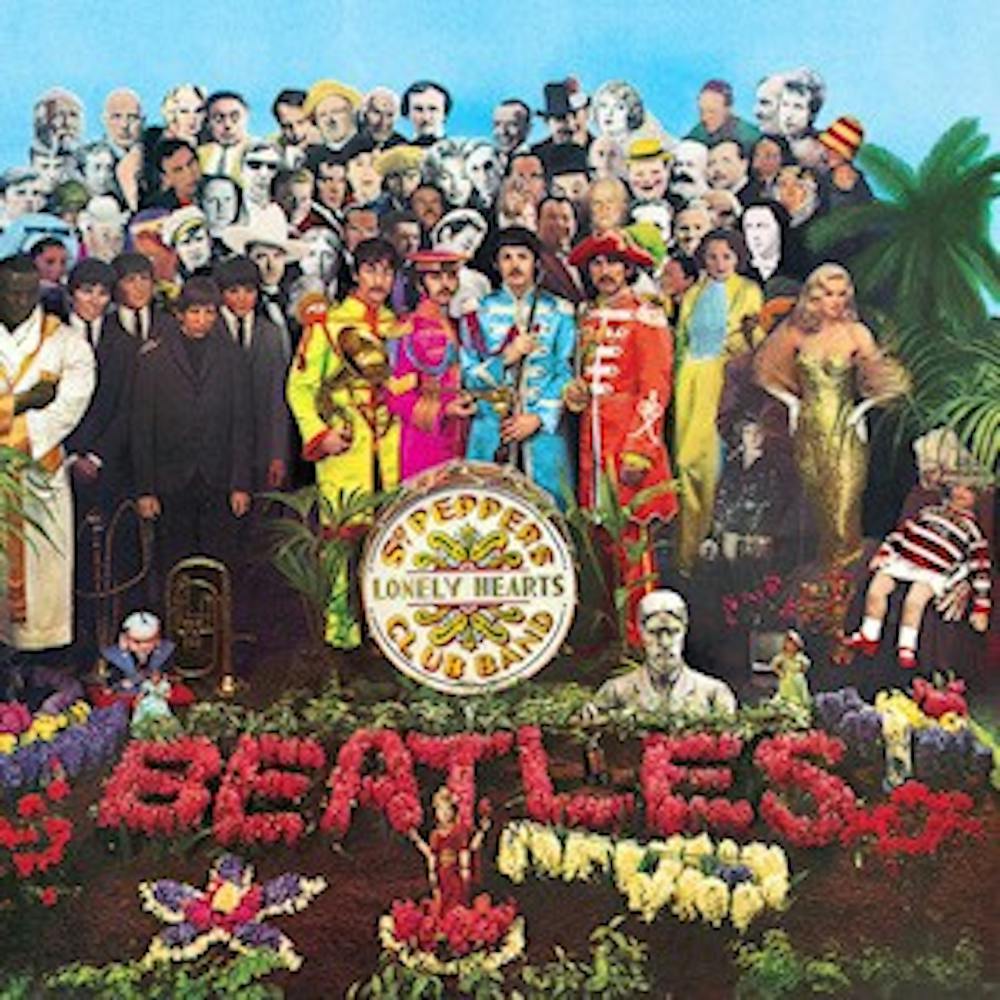In the summer of 1967, The Beatles emerged from a more than 400-hour long recording studio stretch with an epic, colorful and drug-fueled eighth studio album, titled “Sgt. Pepper’s Lonely Hearts Club Band.” A psychedelia-inspired, rock-pop concept record that would top the charts and shake the structure of music production for decades after its release, “Sgt. Pepper’s” is a standout on the highlight reel of music history, blurring pop culture and art and representing the movement of a generation.
This month, the album celebrates its 50th anniversary with the release of a deluxe edition of the record. A shiny reproduction of the famous album for a new generation, the new release of “Sgt. Pepper’s” comes with a full tape of fresh stereo mixes of each song as well as a second disc of raw takes and recording-studio speeches. Fifty years later, this re-release may bear just as much importance and impact to this generation as the original did to the music world of 1967.
The original concept of “Sgt. Pepper’s” is clear. The iconic album art — jarringly colorful and featuring the quartet clad in neon marching-band suits — signifies a radical break from the traditional Beatles style. The Beatles created an “alter-ego band,” stepping outside the box of their seven previous albums, deciding instead to write and play the music of a mysterious, magical band.
“Sgt. Pepper’s” style was critical to the album’s success — both commercially and musically — due to its seamless parallel with the political and social mindset of the time period. All around the Western world, from The Beatles’ home turf in England to San Francisco, young people were stepping out of their restrictive roles, traveling to hippie towns and coastal cities to join a movement enmeshed in the prophecy of “freedom to be.” In this sense, The Beatles — despite their established fame — were not at all separated from the people. In a haze of colorful clothing, freedom of speech and an unhindered sense of self-expression, The Beatles used their music not to shape a movement, but to represent it. They had the “freedom to be” any band they could conjure up.
The new deluxe edition of “Sgt. Pepper’s Lonely Hearts Club Band” admittedly does not feature any new songs, but it does contain new content in the form of untouched rough takes and “speeches” displaying the work required to create the masterpiece. It exposes the complicated conversations between band members and the rocky road that came before the finish line. Fifty years later, these recordings are proof of The Beatles’ fallibility — even such an iconic creation was at one point a heavily flawed work in progress.
The current generation faces a unique pressure in the technological age to produce music at a machine-level pace and to use the most technology to produce effortless and clean music with as little mess along the way as possible. But even The Beatles — still rightfully honored as some of the greatest musical geniuses in history even decades after their disbandment — could not have created the album of a generation without complications, errors and most importantly, human communication and conversations.
Paul McCartney once stated that he did not see The Beatles as the leader of a generation but the spokesman of it, and his statement still holds true. The Beatles used words and music to generate traction for a movement and “Sgt. Pepper’s” is material evidence of a mindset.
However, even 50 years removed from the release of what many still consider the greatest album of all time, the record’s content and story could act as the reincarnated spokesman for the current generation.







